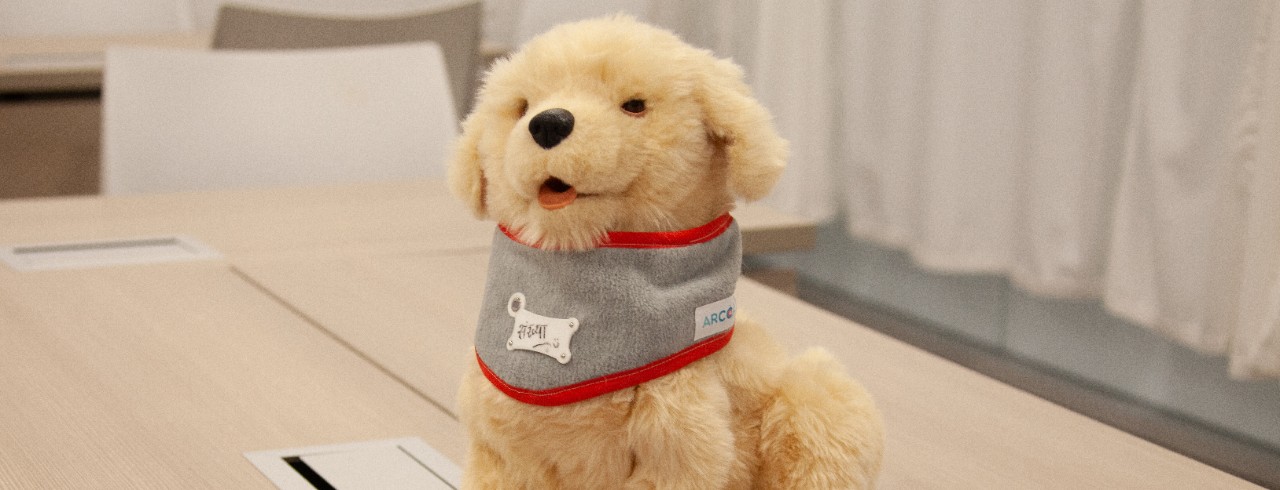
Journal-News: UC studies art, pet robot therapy
University of Cincinnati researchers are studying how art therapy delivered through a mobile app and pet therapy with a robotic dog can affect the wellbeing and mental health of patients with hearing loss.
All patients in the pilot study will be given a tablet, create art based on prompts from the app and then self-report on their mood. Half of the patients in the study will additionally be given a robotic dog to interact with.
Claudia B. Rebola, PhD, associate dean for research, associate professor and director of the new Center for DAAP Research and Innovation (CDRI) on Health and Wellbeing in the University of Cincinnati's College of Design, Architecture, Art, and Planning, told the Journal-News that patients can quickly develop attachments to the robotic dogs like they do with real furry friends.
“And while you know it’s an animal robotic agent — it’s not a real dog — you attach feelings to it, in terms of routines, and interactions, and you expect a bark in response to, let’s say I turn on the lights, and then the dog barks, like saying, ‘hello.’ So you quickly develop a sense of presence with these robots in your life," she said.
Read the Journal-News article. (Note: Article may require a subscription.)
Featured photo at top of robotic dog. Photo/Ravenna Rutledge/University of Cincinnati.
Related Stories
Longtime UC leader honored with lifetime achievement award
February 14, 2025
For 46 years, Andrew Filak, MD, helped shape the University of Cincinnati College of Medicine. Now the Cincinnati Business Courier is awarding him its 2025 Health Care Heroes Lifetime Achievement Award.
UC faculty member works to buck ‘voluntourism’ trend in global...
February 13, 2025
A University of Cincinnati College of Medicine faculty member is working to create sustainable funding models for global oral health initiatives and move away from what is referred to as “parachuting” and “voluntourism” trends.
Social media criticism of judges prompts security concerns
February 13, 2025
Bloomberg News talks to UC College of Arts and Sciences Professor Jeffrey Blevins about recent social media criticisms of the judiciary and the way disinformation can foment violence.
